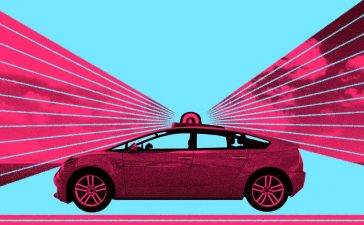Are you ready for a glimpse into the future? Imagine a world where tasks are automated, decisions are predicted, and information is at your fingertips. This is the reality of artificial intelligence (AI) and its impact on our lives. In this article, we will explore how AI apps are revolutionizing the way we live and work.
From voice-activated persThe Future of Technology: How Artificial Intelligence Apps are Revolutionizing the Way We Live and Work
From personal assistants to autonomous vehicles, AI has the potential to transform every aspect of our daily routines. With advancements in machine learning and natural language processing, AI apps are becoming smarter and more intuitive every day. They can analyze vast amounts of data, make complex decisions, and even learn from experience.
In the workplace, AI is streamlining workflows, improving decision-making, and boosting productivity. Intelligent virtual assistants are automating administrative tasks, freeing up time for professionals to focus on more strategic and creative endeavors. Moreover, AI is making customer service more efficient, with chatbots that can provide instant support and resolve issues seamlessly.
The future is here, and AI is at the forefront of this technological revolution. Join us as we delve into the world of AI apps and explore their potential to revolutionize the way we live and work.
The integration of artificial intelligence (AI) apps across various industries has brought forth a myriad of benefits that enhance operations and improve outcomes. One of the primary advantages is the ability to process and analyze vast amounts of data quickly and accurately. For example, in healthcare, AI applications can sift through patient records and clinical data to assist in diagnosing diseases and recommending treatments. This not only speeds up the decision-making process but also increases the accuracy of diagnoses, ultimately leading to better patient care and outcomes. The capability of AI apps to identify patterns in data that humans might overlook is transforming how medical professionals operate.
In the financial sector, AI applications are proving invaluable in risk assessment and fraud detection. Algorithms can analyze transaction patterns in real time and flag suspicious activities almost instantaneously. This proactive approach allows financial institutions to mitigate risks and protect their assets more effectively. Moreover, AI-powered financial advisory apps are enabling individuals to manage their investments with personalized insights based on market trends and individual financial situations. The result is a more informed investor base and improved financial health for many.
Manufacturing and logistics are also experiencing considerable advancements due to AI applications. By leveraging predictive analytics, companies can optimize supply chain management, reduce downtime, and minimize waste. AI can forecast demand fluctuations and adjust production schedules accordingly, ensuring that resources are allocated efficiently. This level of automation not only boosts productivity but also enhances the sustainability of operations. The ability of AI apps to streamline processes and provide actionable insights is revolutionizing industries, leading to increased profitability and competitive advantage.
As technology evolves, so too do the trends and advancements in AI app development. One major trend is the rise of explainable AI (XAI), which aims to make AI’s decision-making processes transparent and understandable to users. This is particularly crucial in sectors like healthcare and finance, where stakeholders need to trust the outcomes generated by AI systems. By providing clear explanations of how decisions are made, XAI fosters trust and encourages broader adoption of AI technologies across various domains.
Another significant trend is the increasing focus on personalization in AI applications. Developers are leveraging machine learning algorithms to create more tailored user experiences. For instance, streaming services use AI to analyze viewing habits and recommend content that aligns with individual preferences. E-commerce platforms employ similar techniques, suggesting products based on past purchases and browsing behavior. This level of personalization not only enhances user satisfaction but also drives engagement and sales.
Additionally, the advancement of natural language processing (NLP) is revolutionizing how users interact with AI apps. NLP enables machines to understand and interpret human language, allowing for more intuitive communication. Voice-activated assistants, such as Siri and Alexa, exemplify this advancement, making it straightforward for users to access information and control smart devices through simple voice commands. As NLP continues to improve, we can expect AI apps to become even more user-friendly, facilitating seamless integration into our daily lives.
The impact of AI applications on our daily lives and work environments is profound and far-reaching. In the realm of personal productivity, AI-powered tools are transforming how we manage tasks and organize our time. For instance, smart calendars can automatically schedule meetings based on participants’ availability, while task management apps can prioritize tasks based on deadlines and importance. This not only declutters our schedules but also ensures that we focus on what truly matters, enhancing our overall productivity.
In the workplace, AI is revolutionizing collaboration and communication. Intelligent virtual assistants can help teams coordinate projects by managing workflows, organizing files, and even facilitating virtual meetings. By automating repetitive tasks, employees can devote more time to creative problem-solving and strategic planning, thus fostering innovation. Furthermore, AI-driven analytics tools provide insights into team performance, enabling organizations to make data-informed decisions that enhance overall efficiency.
Beyond professional settings, AI apps are also reshaping our personal lives. From fitness trackers that monitor health metrics to smart home devices that automate daily chores, AI is making our lives more convenient. For example, apps that integrate with wearable technology can provide personalized workout plans based on individual health data, encouraging healthier lifestyles. As AI continues to evolve, its integration into our everyday routines will likely deepen, creating a future where technology seamlessly enhances both our personal and professional lives.
Several AI applications have gained significant traction in recent years, showcasing their diverse functionalities and benefits. One prominent example is Grammarly, an AI-powered writing assistant that analyzes text for grammatical errors, style issues, and tone. By providing real-time feedback and suggestions, Grammarly helps users improve their writing skills and produce polished content. This application is particularly valuable for professionals, students, and anyone who communicates through writing on a regular basis.
Another notable AI app is Google Assistant, which utilizes natural language processing to understand and respond to user queries. From setting reminders and controlling smart home devices to providing weather updates and answering trivia questions, Google Assistant streamlines daily tasks and enhances productivity. Its ability to learn from user preferences over time makes it an invaluable tool for managing both personal and professional responsibilities.
In the realm of customer service, chatbots have emerged as a powerful AI application. Companies like Zendesk and Drift offer AI-driven chat solutions that can handle customer inquiries, provide instant support, and gather feedback. These chatbots are available 24/7, ensuring that customers receive timely assistance regardless of the time of day. By automating customer interactions, businesses can improve service efficiency while allowing human agents to focus on more complex issues that require personal attention.
Top Artificial Intelligence Applications in 2024
AI applications are at the forefront of driving productivity and efficiency across various sectors. By automating routine tasks, these apps free up valuable time for employees to focus on higher-level responsibilities. For instance, in the marketing industry, AI tools can automate social media posting, analyze engagement data, and even create personalized email marketing campaigns. This level of automation not only saves time but also ensures that marketing efforts are more targeted and effective, maximizing return on investment.
In project management, AI apps are enhancing collaboration and workflow management. Tools such as Trello and Asana now incorporate AI features that help teams prioritize tasks, allocate resources efficiently, and track project progress in real time. By providing insights into team performance and potential bottlenecks, these applications enable managers to make informed decisions that keep projects on track and within budget. The result is a more streamlined workflow and a significant reduction in project completion times.
Moreover, AI applications are improving operational efficiency in industries like manufacturing and logistics. Predictive maintenance solutions use AI to monitor equipment performance and predict when maintenance is needed, reducing downtime and preventing costly breakdowns. In warehouses, AI-driven inventory management systems can optimize stock levels and streamline order fulfillment processes. These innovations not only enhance productivity but also contribute to cost savings and improved customer satisfaction.
As the adoption of AI applications grows, so do the ethical considerations surrounding their usage. One major concern is the potential for bias in AI algorithms. Since AI systems learn from historical data, they may inadvertently perpetuate existing biases found within that data. This can lead to unfair treatment of certain groups or individuals, particularly in sensitive areas like hiring, lending, and law enforcement. Addressing these biases requires a conscious effort from developers to ensure that AI systems are trained on diverse and representative datasets.
Another ethical consideration is the impact of AI on employment. While AI applications can enhance productivity and efficiency, there is a valid concern that increased automation may lead to job displacement in certain sectors. As machines take over repetitive and routine tasks, workers may find themselves facing unemployment or the need for retraining. It is essential for organizations to strike a balance between leveraging AI for operational gains while also investing in workforce development and reskilling initiatives to prepare employees for new roles.
Data privacy and security are also critical ethical issues in the realm of AI app usage. As AI applications often require access to vast amounts of personal data to function effectively, ensuring the protection of user information is paramount. Companies must prioritize transparent data collection practices and robust security measures to safeguard user privacy. Establishing ethical guidelines and regulations governing AI usage will be vital in addressing these concerns and building trust among users.
The future of AI applications appears promising, with numerous opportunities for growth and innovation on the horizon. One of the most exciting prospects is the advancement of general artificial intelligence (AGI), which aims to create machines that can understand, learn, and apply knowledge across a wide range of tasks without human intervention. AGI has the potential to revolutionize industries by performing complex problem-solving tasks and making decisions that currently require human intelligence.
Additionally, the integration of AI with other emerging technologies, such as blockchain and the Internet of Things (IoT), will further enhance the capabilities of AI apps. For instance, smart cities powered by IoT devices can use AI to optimize traffic flow, reduce energy consumption, and enhance public safety. By harnessing the collective power of these technologies, we can create more efficient and sustainable urban environments that improve the quality of life for residents.
Moreover, as AI continues to evolve, we can expect to see advancements in AI-driven personalized experiences. From tailored learning solutions in education to customized health and wellness programs in healthcare, AI applications will increasingly adapt to individual needs and preferences. This level of personalization will enhance user engagement and drive better outcomes across various sectors. As we look to the future, the potential for AI apps to transform our lives and work environments remains immense.
While the potential of AI applications is vast, several challenges must be addressed to ensure their successful development and adoption. One significant hurdle is the lack of standardized frameworks and regulations governing AI technologies. The rapid pace of AI innovation often outpaces the creation of comprehensive guidelines and ethical standards. This can lead to uncertainty among developers and organizations, hindering the widespread adoption of AI applications. Establishing clear regulations will be crucial to fostering a safe and responsible AI ecosystem.
Another challenge is the need for skilled professionals in the field of AI. The demand for AI expertise continues to grow, but there is a shortage of qualified individuals with the necessary skills to develop and implement AI applications. To overcome this barrier, educational institutions must prioritize AI training and offer programs that equip students with the technical knowledge and practical experience required in the workforce. Collaborations between academia and industry can also help bridge the skills gap and ensure a steady pipeline of talent.
Lastly, organizations must address the cultural shift required for successful AI adoption. The introduction of AI applications can disrupt traditional workflows and processes, leading to resistance from employees. It is essential for leaders to foster a culture of innovation and adaptability, encouraging employees to embrace AI as a tool for enhancement rather than a threat. Providing training, resources, and support will empower employees to leverage AI applications effectively, resulting in a more harmonious integration of technology into the workplace.
As we stand on the brink of a technological revolution, the potential of artificial intelligence applications to transform our lives and work is undeniable. From improving productivity and efficiency to enhancing decision-making and personalization, AI is reshaping various industries in profound ways. While challenges remain, the benefits of embracing AI far outweigh the obstacles.
To fully harness the potential of AI apps, organizations and individuals must prioritize ethical considerations and invest in training and education. By fostering a culture of innovation and adaptability, we can ensure that AI technologies are used responsibly and effectively. As we move forward, it is essential to remain open to the possibilities that AI offers, understanding that it is not merely a tool but a partner in our journey toward progress.
In conclusion, the future with AI apps is bright, and by embracing this technology, we can revolutionize the way we live and work, paving the way for a more efficient, personalized, and innovative world. As we continue to explore the vast landscape of AI, let us approach it with curiosity and a commitment to ethical practices, ensuring that we create a future that benefits everyone.










